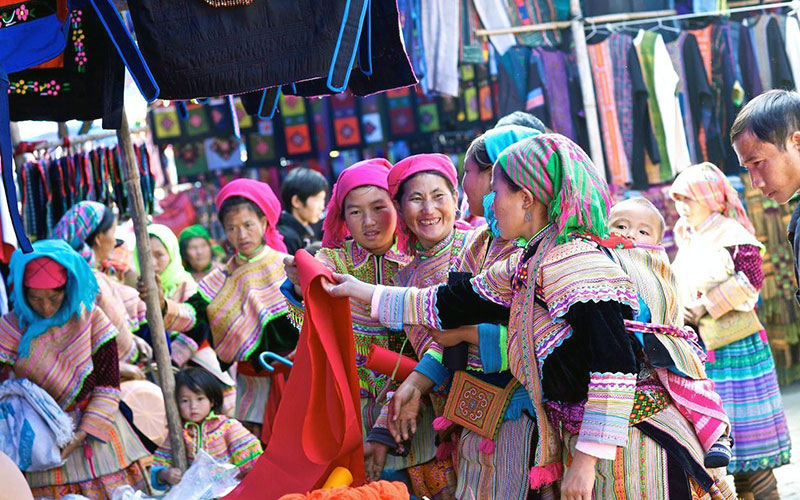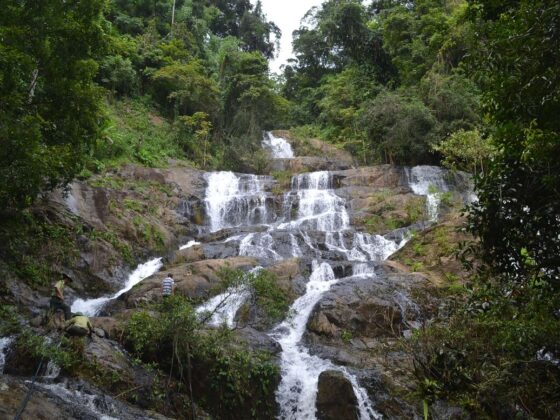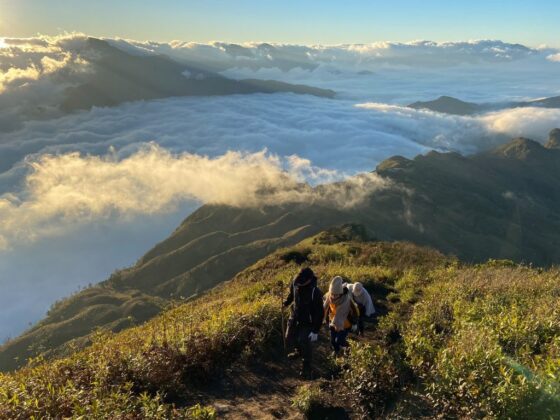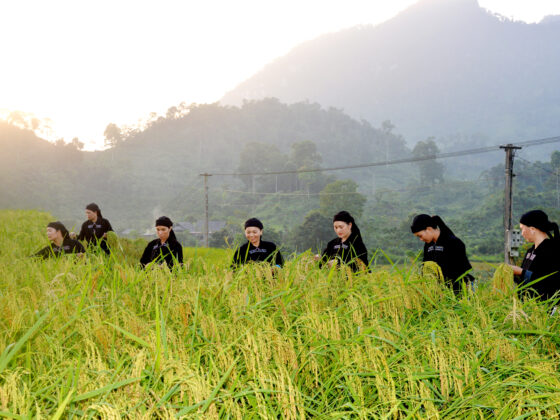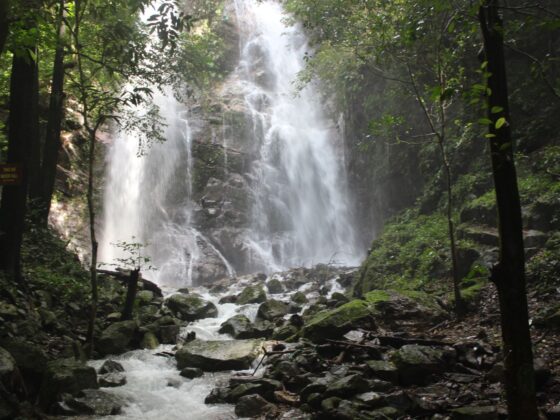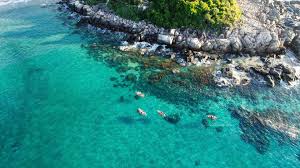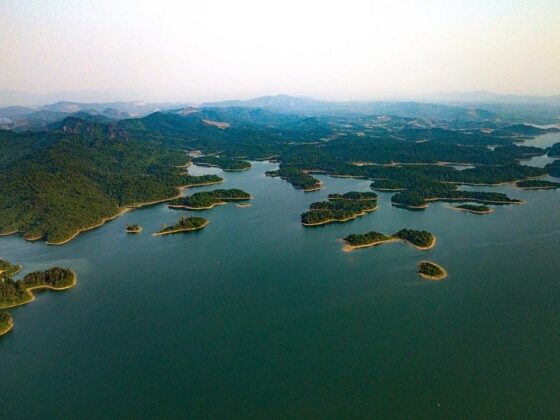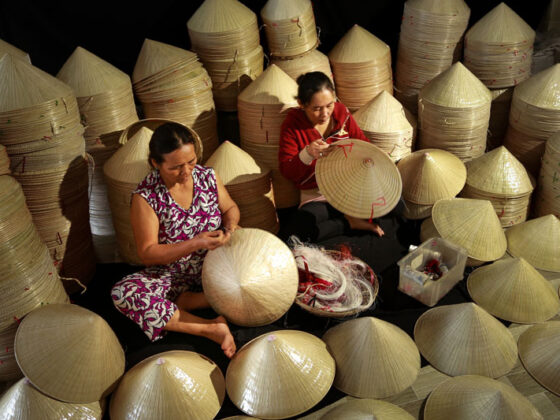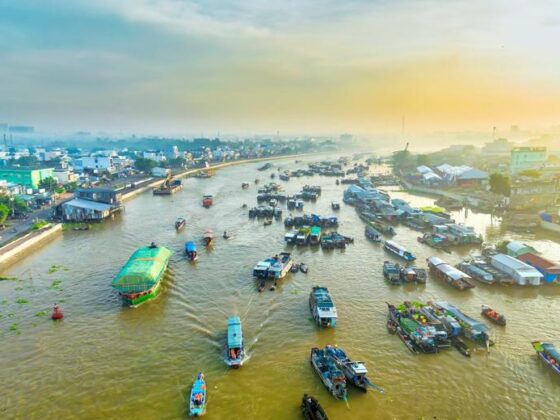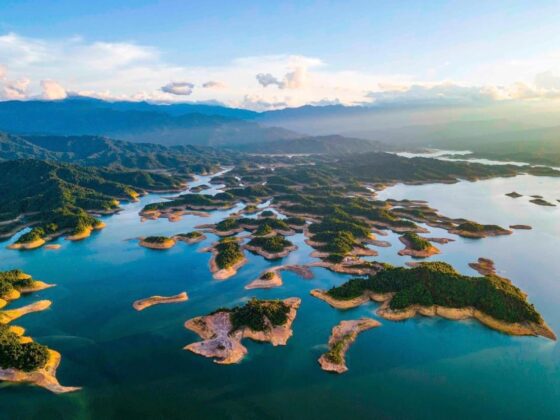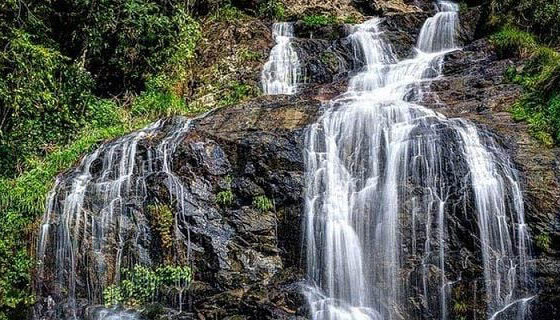Table of Contents Show
Some treks lead to mountain peaks, others to waterfalls or cloud seas. In the northern highlands of Lào Cai Province, one of the most rewarding trails leads not to a summit but to a market. Bắc Hà, the so-called “White Plateau,” comes alive each Sunday morning with one of Vietnam’s most vibrant ethnic markets. To arrive on foot, after a dawn trek through terraced fields and misty valleys, is to experience the Bắc Hà Sunday market not as a stop on a tour, but as a living, breathing destination.
Read more interesting posts here:
- Embracing the Rain: Your Ultimate Guide to Vietnam Wet Season Travel
- Ethical Elephant Tourism Vietnam: Trekking for Conservation in Yok Đôn
- Rice Terraces and Tea Leaves: Discover Hoàng Su Phì Homestay
Trekking into the heart of the Bắc Hà Sunday market
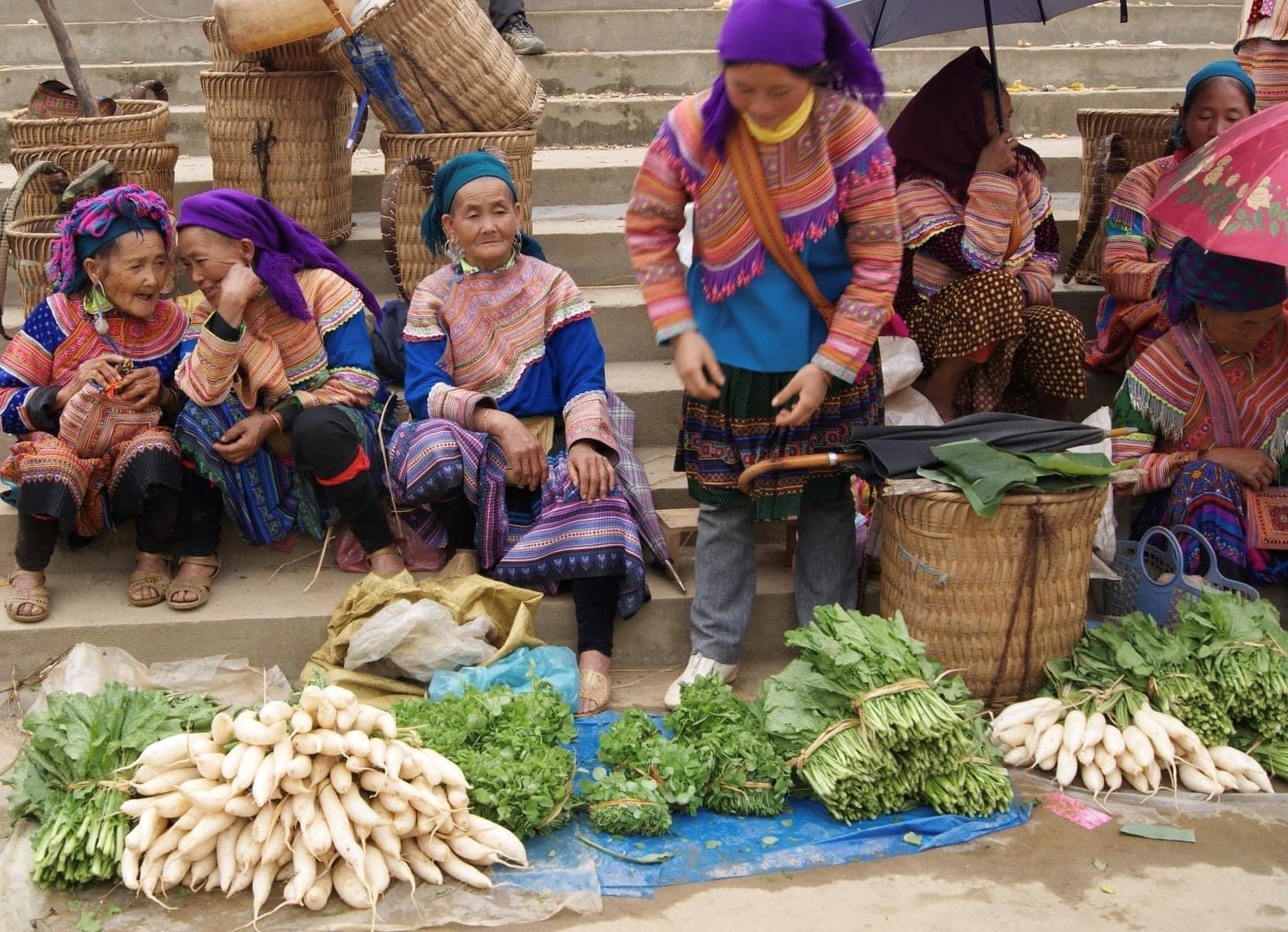
We began long before sunrise. The air was crisp, carrying the faint smell of woodsmoke from H’Mông homes tucked into the hills. Our headlamps bobbed along narrow paths, each step slick with dew. Roosters crowed in the distance, and dogs barked as we passed. The trail wound through rice terraces, their mirrored paddies catching the first glow of light. By the time the sun crested the ridge, we could already hear it: the low hum of voices from the Bắc Hà Sunday market, carried on the morning breeze, growing louder as we drew closer to Bắc Hà town.
First impressions of the vibrant Bắc Hà Sunday market
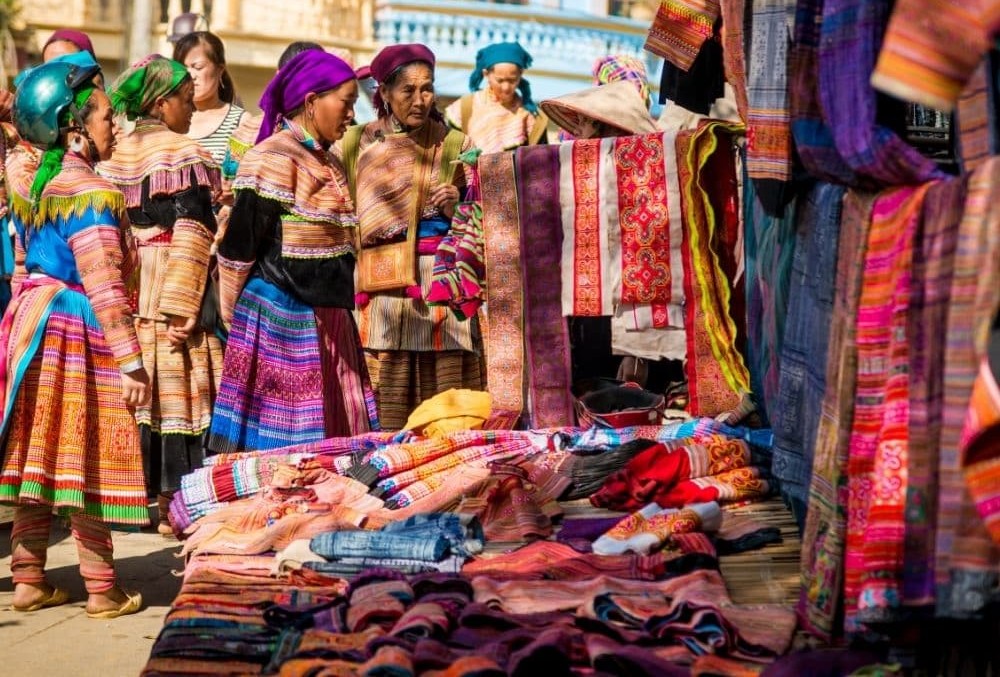
The Bắc Hà Sunday market revealed itself slowly. First came the horses, tied along the roadside, their breath steaming in the cool air. The horse market is famous — a gathering where animals are traded as they have been for generations, their value measured not in numbers but in trust and reputation. Then came the colors: women in elaborate skirts of the Flower H’Mông, their textiles so vivid they seemed to set the street alight. Blues, reds, and greens shimmered with embroidery that takes months to complete, each stitch telling a family’s story.
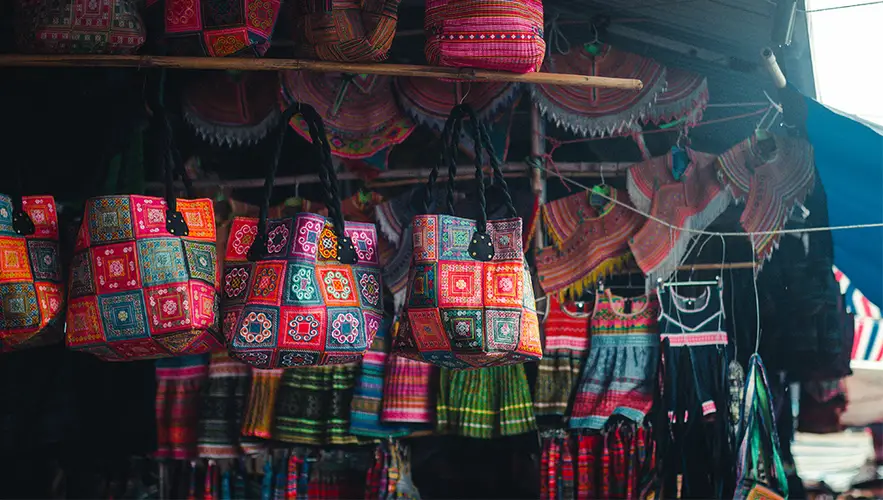
By the time we reached the main square, the world had exploded into sound. The Bắc Hà Sunday market was alive with traders calling out their wares: honey in recycled bottles, hand-forged knives, baskets of medicinal herbs. The air was thick with the smell of grilled pork skewers and phở simmering in steaming pots.
In one corner, a group of men crouched around jars of rượu ngô — corn wine — sipping from tiny glasses and laughing loud enough to drown out the bargaining nearby. It was not just goods that were traded here, but stories: neighbors catching up, promises exchanged, gossip carried as currency as real as rice or livestock.
The cultural ecosystem of the Bắc Hà Sunday market
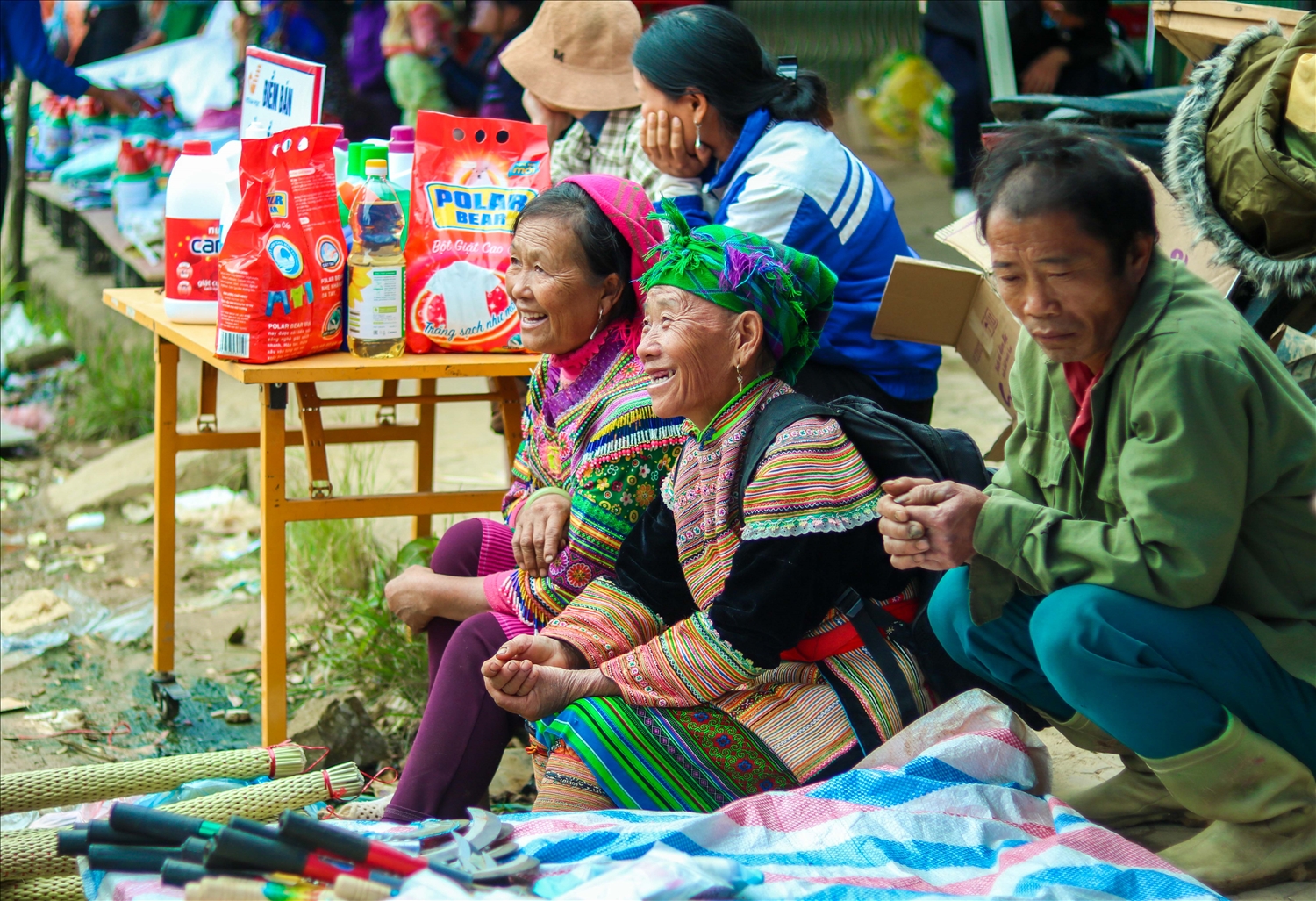
For me, the heart of the Bắc Hà Sunday market lay not in the stalls but in the energy. It was a choreography of people and products, each moving with purpose, each connected to the other. A woman sold indigo-dyed cloth to buy salt, a man sold buffalo to buy wedding gifts, a grandmother passed down recipes along with seeds of mountain herbs. It felt alive in the same way a jungle does complex, layered, humming with interaction.
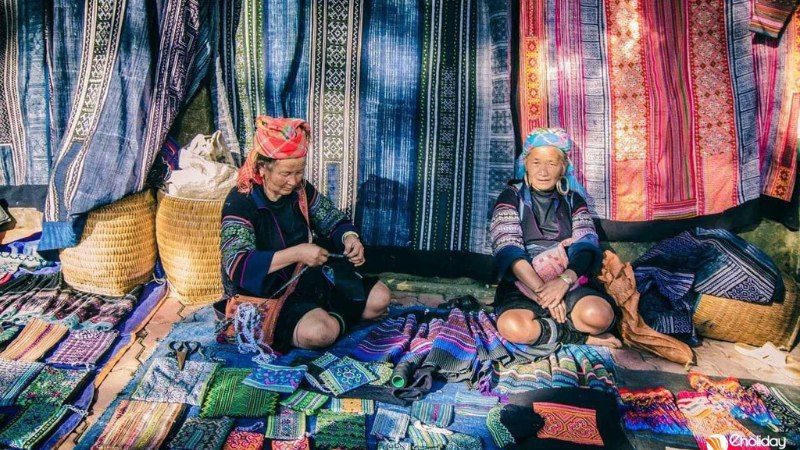
As the morning wore on, the chaos mellowed into rhythm. At the Bắc Hà Sunday market, children tugged at their mothers’ skirts, carrying small treats in paper cones. Musicians played bamboo flutes near the edge of the square. Foreign travelers wandered with cameras, but here, they were not the focus — they were background, folded into the market’s larger story.
Planning your visit to the Bắc Hà Sunday market
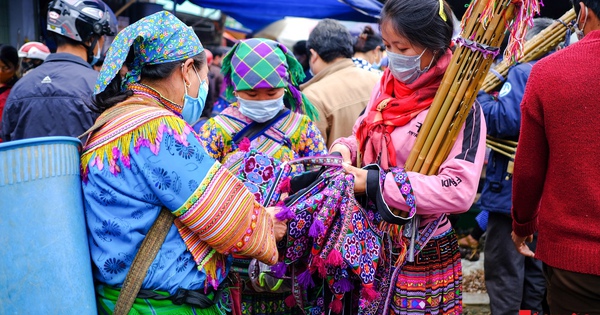
Trekking back through the hills that afternoon, the market still ringing in my ears, I realized that places like the Bắc Hà Sunday market are not just for buying and selling. They are ecosystems of people, as alive and intricate as any forest.
The Bắc Hà Sunday market lies about 60 kilometers northeast of Sa Pa and can also be reached in around 3 hours from Lào Cai City, the gateway to the region by train from Hanoi. Its remoteness keeps the market authentic, yet close enough to pair with treks through Y Tý, Hoàng Su Phì, or Sa Pa’s valleys. Arriving before 8 a.m. is best, when the horse market is in full swing and the town is at its liveliest.
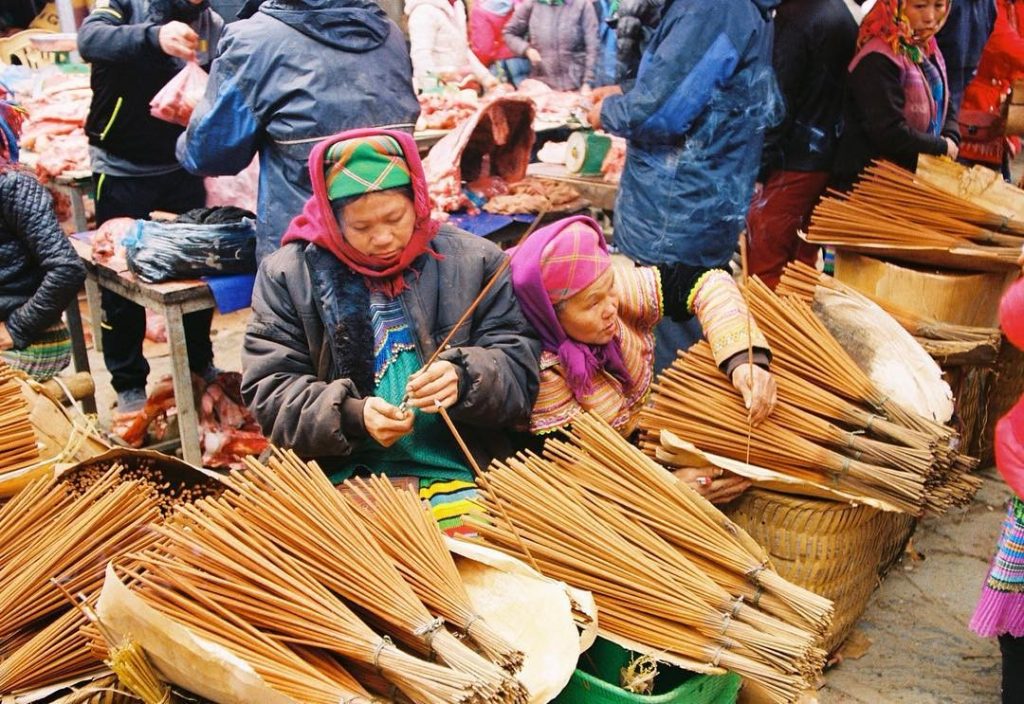
And just like any forest, it is fragile. The Bắc Hà Sunday market survives because traditions are respected, because people continue to value connection as much as commerce. To trek there is not just to witness a spectacle but to join, briefly, an ancient rhythm that has pulsed through these hills for centuries.
Conclusion
In the end, trekking to the Bắc Hà Sunday market is more than an adventure; it’s an immersion into a living landscape where culture grows as naturally as rice in the terraces. It’s a powerful reminder that the most memorable destinations are not just places you see, but rhythms you feel. To arrive on foot is to understand the market not as a point on a map, but as the vibrant heart of the entire region.
Ready to discover your own trail tale? Join our community of explorers in the ExoTrails Facebook Group and follow the ExoTrails Fanpage for daily inspiration and trail tips!
FAQs
What is the Bắc Hà Sunday market?
The Bắc Hà Sunday market is one of Vietnam’s largest and most colorful ethnic minority markets, where local groups like the Flower H’Mông gather to trade goods, animals, and socialize.
How is it different from the markets in Sapa?
Bắc Hà is generally considered more authentic and less tourist-oriented than the markets in Sapa, offering a more genuine glimpse into local life.
What is the best time to arrive at the market?
It’s best to arrive early, before 8 AM, to experience the market at its most lively, especially the famous horse and buffalo trading sections.
What can I buy at the Bắc Hà Sunday market?
You can buy a wide range of local products, including handmade textiles and clothing, traditional foods, medicinal herbs, farming tools, and livestock.
How do I get to the Bắc Hà Sunday market?
You can reach it by road from Sapa (about 2.5-3 hours) or Lào Cai City (about 2 hours), which is accessible by overnight train from Hanoi.

